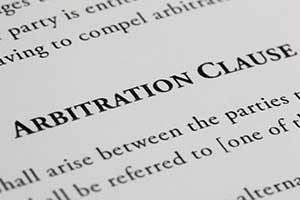Recent decisions by the North Carolina Court of Appeals and North Carolina Business Court (NCBC) shed light on a previously unsettled question of law: when can a North Carolina trial court award attorney’s fees as part of a class-action settlement in the absence of additional statutory authority?
Long-standing precedent is that a court can award attorneys’ fees to a prevailing party when statutorily authorized to do so.[1] This practice is known as the “American Rule.” The intended purpose of the American Rule is to encourage the conservation of judicial resources by promoting settlement and discouraging unnecessarily prolonged litigation.[2] Regarding settlement agreements, the NC Court of Appeals determined in a September, 2015 decision that the American Rule was not intended to restrict voluntary settlement agreements because allowing parties to negotiate attorneys’ fees is consistent with North Carolina’s policy of encouraging out-of-court settlements.[3] In the same decision, the NC Court of Appeals clarified the Court can enforce a class-action settlement agreement, which includes the payment of attorneys’ fees, subject to the requirement that the Court’s award must be reasonable.[4]
Soon thereafter, in October, 2015, the NCBC was faced with determining the reasonableness of requested attorneys’ fees as an award from a class-action settlement agreement.[5] In 2014, Pike Corporation entered into a merger agreement with Pioneer Parent, Inc., and four shareholder class-action lawsuits were subsequently filed, alleging breaches of fiduciary duties for omitting material information from the preliminary proxy statement and making misleading disclosures. The parties entered into a settlement agreement allowing for the award of attorney’s fees, but the amount of fees was contested. Shareholders’ counsel requested an aggregate award of $550,000 for attorneys’ fees and reimbursement of expenses for all class counsel. Pioneer Parents agreed not to contest an award of up to $275,000, but argued the Court could not and should not award a greater amount.
Relying on the recently decided NC Court of Appeals case, the NCBC emphasized “when the parties agree to fee shifting but do not agree on the amount of fees to be awarded, the Court may award the amount that it determines to be fair and reasonable.”[6] In ascertaining the reasonableness of the requested fees, the Court divided the fees by hourly rates. Shareholders’ counsel submitted affidavits listing 1,394.60 hours as the total time spent on the case. The NCBC broke down the hours, accounting for $550 per hour for lead counsel, $375 for partner hours of non-lead counsel, and $250 for associate’s fees, together with $35,686.64 for additional expenses. Comparing these rates to those of other North Carolina attorneys, the Court recognized they were “within, but at the higher end of, the range that this Court has found to be reasonable for complex business litigation in North Carolina.”[7] In support of its decision to approve the $550,000 award, the Court highlighted the complex nature of the case thus the need for highly skilled attorneys, and determined the award was comparable to the range of awards the Court previously found to be reasonable in disclosure-based settlements.
It is noteworthy that in assessing the reasonableness of counsels’ hourly fees, the Court compared them to standard fee rates only for other North Carolina attorneys. Lead counsel’s billing rate (who was from Pennsylvania), $250 per hour for legal assistants and $725 per hour for partners, was in excess of those typically charged in North Carolina. It discounted its fees before submitting its request to the NCBC. The Court found “there are North Carolina lawyers who are fully capable of pursuing similar litigation and, thus, that it would be unnecessary and inappropriate to apply billing rates higher than those typically charged by skilled counsel in North Carolina.”[8]
[1] Faulkenbury v. Teachers’ & State Emps.’ Ret. Sys. Of N.C., 345 N.C. 683, 696, 483 S.E. 2d 422, 430 (1997).
[2] Ehrenhaus v. Baker, Nos. COA14-1201, COA14-1083, 2015 N.C. App. LEXIS 771 (N.C. Ct. App. Sept. 15, 2015).
[3] Id.
[4] Id.
[5] In re Pike Corp. S’holder Litig., 2015 NCBC 90 (October 8, 2015).
[6] Id.
[7] Id. The Court noted that rates of approximately $300.00 to $550.00 per hour are typical for this type of litigation in North Carolina.
[8] Id.




